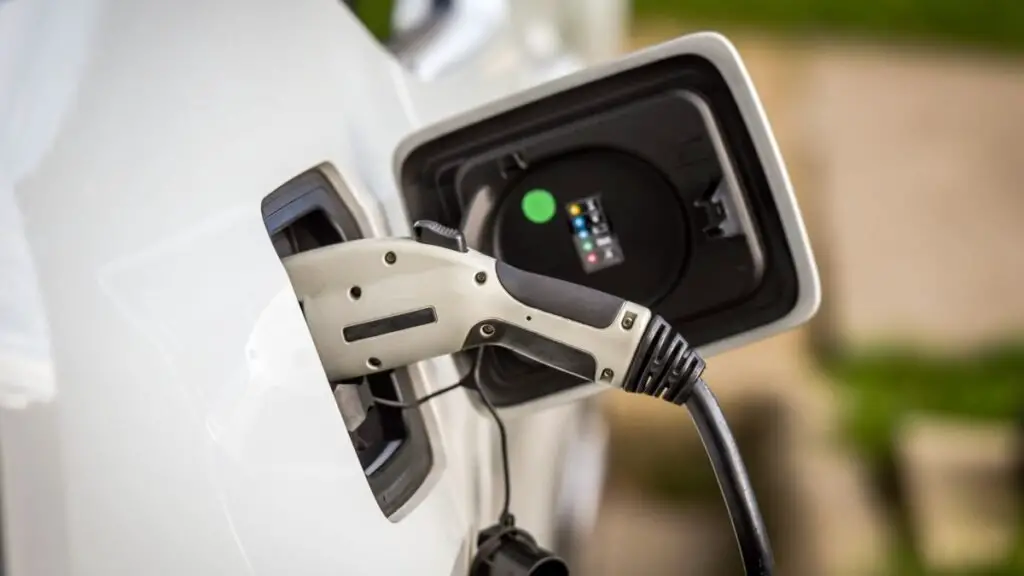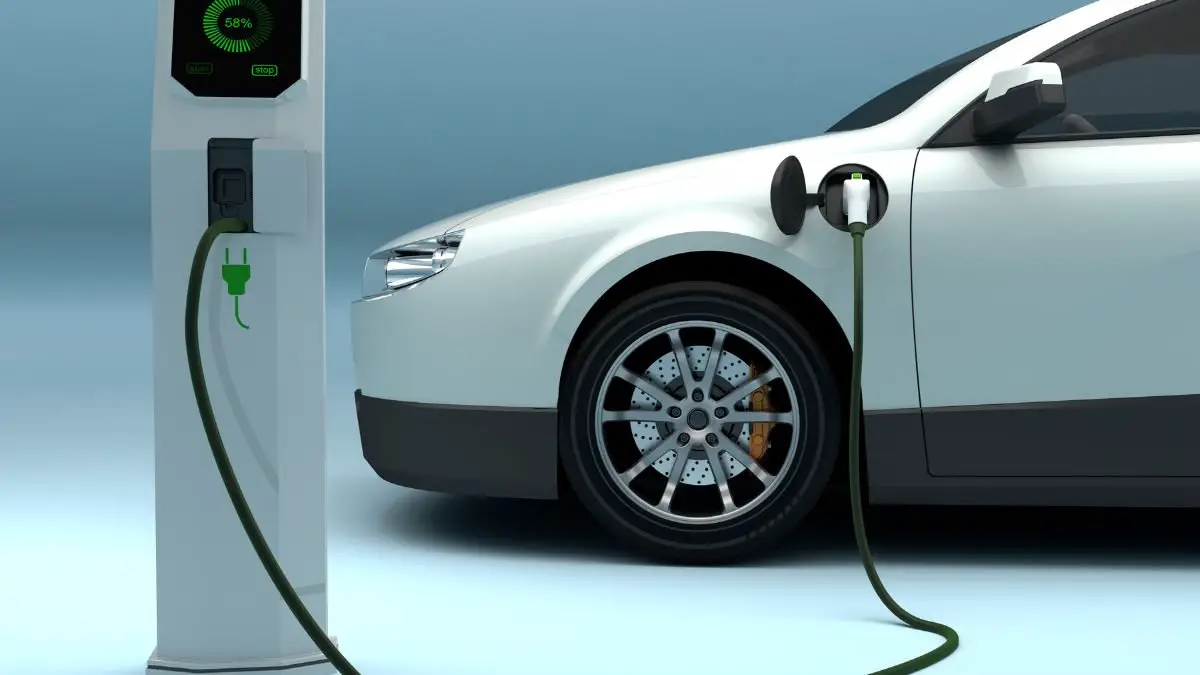If you're wondering how much electricity an electric car uses, you're in the right place. Understanding the energy consumption of electric vehicles (EVs) is essential for anyone considering making the switch from gasoline to electric. Electric cars offer numerous benefits, but knowing their electricity usage is key to making an informed decision. Let’s break down the details so you can feel confident about the efficiency and cost-effectiveness of EVs.
On average, an electric car uses about 30 kWh (kilowatt-hours) per 100 miles. This can vary based on factors such as the model of the car, driving habits, and environmental conditions. For comparison, if electricity costs $0.13 per kWh, driving 100 miles would cost approximately $3.90. This is significantly cheaper than the cost of gasoline for the same distance. Here’s a quick reference for different EV models:
| EV Model | kWh per 100 miles | Cost per 100 miles at $0.13/kWh |
|---|---|---|
| Tesla Model 3 | 26 | $3.38 |
| Nissan Leaf | 30 | $3.90 |
| Chevy Bolt | 28 | $3.64 |
Understanding the electricity usage of electric cars can help you make an informed decision about switching to an EV. Stay tuned for more insights into the benefits of electric vehicles, tips for maximizing efficiency, and comparisons with traditional gasoline cars.
Understanding EV Electricity Usage
Efficiency Factors
Wind resistance significantly impacts an electric car's electricity consumption. Higher speeds result in more energy required to overcome wind drag, reducing efficiency.
Driving speed plays a crucial role in determining how efficiently an electric car uses electricity and kwh. Maintaining a moderate speed can help optimize energy consumption.
Tire condition is essential for maximizing energy efficiency in electric cars. Properly inflated tires reduce rolling resistance, improving overall efficiency.
Driving Habits Impact
Acceleration and braking patterns have a direct impact on electricity usage in electric vehicles. Smooth driving with gradual acceleration and braking conserves energy.
Regenerative braking is a key feature in electric cars that converts kinetic energy into stored energy, enhancing efficiency and extending driving range.
Consistent driving speeds contribute to improved energy efficiency by minimizing sudden accelerations or decelerations, thus saving electricity.
Charging Times Influence
Comparing the charging duration, energy usage, cost, and kwh of Level 1, Level 2, and Level 3 chargers reveals significant differences in speed and convenience for electric car owners.
Fast charging stations are crucial for providing quick recharging options during long trips or when time is limited, offering added convenience to drivers.
Charging times impact daily routines and travel plans for electric vehicle owners. Longer charging times may require strategic planning to ensure uninterrupted journeys.
Factors Affecting Electric Car Efficiency

Vehicle Design
Electric car efficiency is heavily influenced by aerodynamics, with sleek designs reducing energy consumption. Lightweight materials like aluminum and carbon fiber also play a crucial role in enhancing efficiency. The vehicle's shape and design can significantly impact electricity usage, affecting overall energy consumption.
Battery Capacity
The size of the battery directly affects both the range and energy consumption of an electric car. Larger batteries generally allow for longer driving distances, while smaller ones may require more frequent charging. Advancements in battery technology continue to drive improvements in efficiency, offering better performance and longer driving ranges.
Weather Conditions
Extreme temperatures can have a significant impact on battery performance, affecting an electric car's energy consumption. Heating and cooling systems within the vehicle also contribute to electricity usage. To optimize energy efficiency in different weather conditions, drivers can utilize strategies such as pre-conditioning the cabin while the car is still plugged in.
Terrain Influence
When it comes to driving on varied terrains, the terrain itself plays a crucial role in determining energy consumption. Uphill driving requires more power and thus more electricity, while downhill driving can help recharge the battery through regenerative braking. Elevation changes also impact electricity usage, influencing overall efficiency during different driving scenarios.
Cost of Charging at Home
Calculating Electricity Costs
To determine the electricity cost per mile for an electric car, start by knowing your vehicle's kilowatt-hours (kWh) per mile consumption. Consider charging efficiency and battery capacity in your calculations. Factors like local electricity rates and charging habits significantly influence monthly expenses. Utilize online calculators or smartphone apps for accurate estimations.
Peak vs Off-Peak Charging
Charging during off-peak hours offers lower electricity rates, reducing overall costs. Compare this with peak-hour rates to understand potential savings. Time-of-use electricity plans often feature discounted rates during off-peak periods, making it financially advantageous to charge your electric car then. Adopting a strategy to charge during off-peak times can lead to substantial savings over time.
Home Charging Setup
Installing a Level 2 charging station at home provides faster charging speeds compared to standard outlets, enhancing convenience. Overnight charging allows you to start each day with a full battery, ideal for daily commutes or unexpected trips. To set up an efficient and cost-effective home charging system, consider factors like installation costs, energy efficiency, and compatibility with your electric car model.
Comparing EV and Gas Fuel Costs
Price per Mile Comparison
Electric cars typically cost less per mile to operate compared to traditional gasoline vehicles. Owning an electric car offers substantial long-term savings due to lower electricity costs. The price per mile for electric cars can vary based on driving behaviors and local electricity rates.
Annual Fuel Savings
Switching to an electric car results in significant annual fuel savings. Reduced maintenance and fuel costs contribute to the financial benefits of owning an electric vehicle. Driving frequency and distances play a crucial role in determining the annual savings from using an electric car.
Environmental Benefits
Transitioning to an electric car has profound environmental benefits, including reduced emissions. Electric vehicles significantly lower greenhouse gas emissions compared to gasoline cars. Electric cars are pivotal in advancing towards a more sustainable future for our planet.
Assessing Electric Car Suitability
Driving Frequency
Daily driving habits significantly impact electricity consumption in electric cars. The more you drive, the more energy the vehicle consumes. Understanding this relationship is crucial for managing charging needs effectively. To optimize energy usage, consider charging your electric car during off-peak hours and using regenerative braking to maximize efficiency.
- Pros: Efficient charging management, reduced energy costs.
- Cons: Higher electricity consumption with increased driving frequency.
Charging Infrastructure
Expanding public charging infrastructure is vital for the widespread adoption of electric vehicles. Charging networks play a key role in alleviating range anxiety and encouraging more people to switch to electric cars. Access to charging stations in both urban and rural areas enhances the convenience of owning an electric vehicle.
- Public charging stations are essential for long-distance travel.
- Charging networks contribute to environmental sustainability efforts.
Lifestyle Compatibility
Evaluating how an electric car fits into different lifestyles is crucial before making a purchase decision. Electric cars offer benefits such as lower maintenance costs, quieter operation, and reduced carbon footprint. Whether it's commuting to work, running errands, or embarking on road trips, electric vehicles provide flexibility and convenience for various activities.
- Owning an electric car aligns with eco-conscious lifestyles.
- Electric vehicles are suitable for urban and suburban living arrangements.
Readiness for Electric Vehicles
Evaluating Needs and Preferences
Assess your driving needs carefully to determine if an electric car suits your lifestyle. Consider factors like daily commute distance and access to charging stations. Understanding how vehicle features like range, charging speed, and battery capacity align with your driving habits is crucial. Customization options such as color, interior design, and technology packages can enhance your overall driving experience.
Financial Considerations
Analyzing the total cost of ownership is essential when comparing electric cars to gasoline vehicles. Upfront costs may be higher for electric cars, but incentives and long-term savings on fuel and maintenance can offset this difference. Research financing options such as loans or leases tailored for electric vehicle purchases. Explore tax credits available in your region to maximize savings.
Future Proofing Transportation
Explore the latest advancements in electric vehicle technology to stay informed about industry trends. Keep an eye on developments in infrastructure like fast-charging networks and battery technology improvements. Electric cars play a significant role in reducing emissions and reshaping transportation towards sustainability. Stay updated on potential innovations such as autonomous driving features and renewable energy integration in the automotive sector.
Final Remarks
You've delved into the realm of electric vehicles, understanding their electricity usage, efficiency factors, charging costs, and overall suitability. By comparing electric car fuel expenses with traditional gas vehicles, you've gained insights into the financial benefits of embracing electric transportation. Assessing your readiness for an electric vehicle involves considering charging infrastructure availability, your daily commute distance, and environmental consciousness.
Now equipped with a comprehensive understanding of electric cars' energy consumption and cost-effectiveness, you're in a prime position to make an informed decision. Take the next step towards sustainable living by exploring electric vehicle options that align with your lifestyle and values. Embrace the future of transportation while reducing your carbon footprint and contributing to a cleaner environment.
Frequently Asked Questions
How does the electricity usage of an electric car compare to a traditional gas-powered vehicle?
Electric cars are more energy-efficient than gas vehicles, using about 0.3 kWh per mile compared to 0.9 gallons for gas cars. This translates to lower fuel costs and reduced environmental impact.
What factors affect the efficiency of an electric car in terms of electricity consumption?
Factors such as driving habits, weather conditions, vehicle weight, and battery health can influence an electric car's energy efficiency. Maintaining optimal driving practices and regular battery maintenance can help improve efficiency.
Is it cost-effective to charge an electric car at home?
Charging an electric car at home is generally cheaper than refueling a gas car. On average, it costs about $0.13 per kWh to charge at home, offering savings compared to gasoline prices.
How do the overall costs of owning an electric car compare to a traditional gas vehicle?
While the upfront cost of an electric car may be higher, the long-term savings on fuel and maintenance make them more cost-effective over time. Electric cars have lower operating costs and qualify for tax incentives in many regions.
How can I determine if an electric car is suitable for my lifestyle and driving needs?
Consider factors like your daily commute distance, access to charging infrastructure, budget for purchasing and installing a charging station, and any potential lifestyle adjustments needed. Research different models' range capabilities to find one that suits your needs.
Image Source: Paid image from CANVA

